Vintage Trouble's Nalle Colt on his 10 live guitar lessons
The road-warrior's essential performing tips
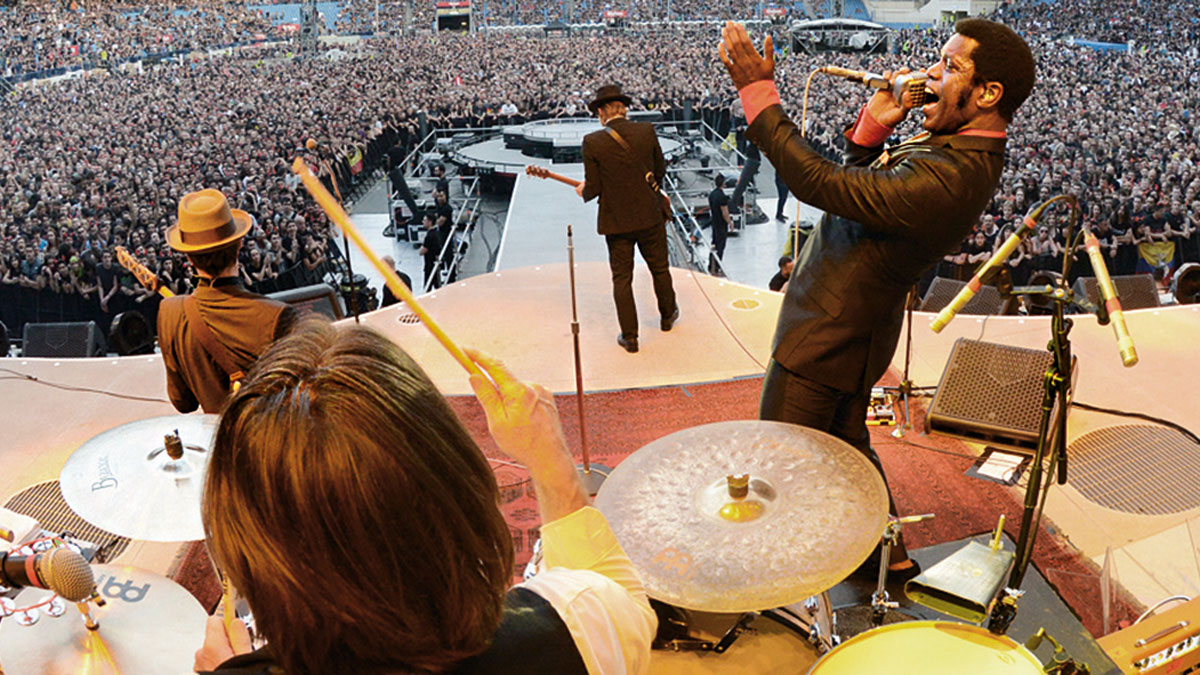
Introduction
Hard-rockin’ soul sensations Vintage Trouble have won fans all around the world with their incredible shows; blistering blues guitarist Nalle Colt shares the 10 live lessons he’s learned to help you brew up a storm onstage, too.
Whether they’re bringing the boogie downstairs in smoky basement bars or taking blues to new limits on stadium tours with the legends of old, Vintage Trouble are undisputed masters of the stage.
They’ve only been around for five years, but in that time they’ve supported Bon Jovi, The Who, and more recently AC/DC
They’ve only been around for five years, having formed in Los Angeles during the summer of 2010, but in that time they’ve supported Bon Jovi, The Who, and more recently AC/DC, in some of the world’s biggest venues.
It’s the kind of start that would sit firmly beyond most band’s wildest dreams, simply just too good to ever be true. And naturally, you could bet your bottom dollar the quartet have learned a thing or two along the way.
Founding guitarist Nalle Colt sits down with MusicRadar to share his 10 best lessons about stagecraft and becoming a better live musician…
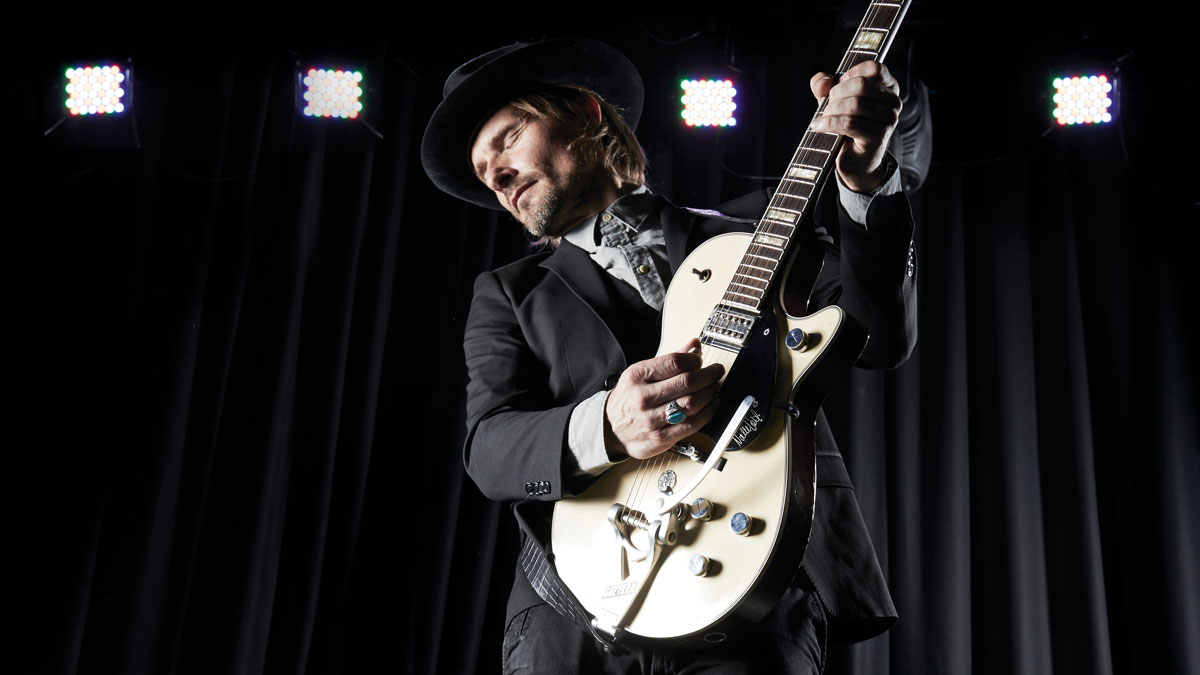
1. Always find time for yourself
Work to be at one with your instrument
“There are so many people backstage, especially at stadium shows or festivals. The press, other bands, your friends… everybody wants to come say hey.
Just sit down strum a chord and think about the set. Is there a little run you’re not sure on
“For me, I try to take my guitar to an empty space somewhere, breathe and play. Just noodle, it’s not important what you play. Just be at one with the guitar.
“Before shows you can get wound up if everyone’s around you and even more so if you’re playing an important show. So the main thing I’d recommend is a wind-down, like an almost meditational moment with your guitar.
“Just sit down strum a chord and think about the set. Is there a little run you’re not sure on that you could reacquaint yourself with? I need that 40-minute chill-out time!”
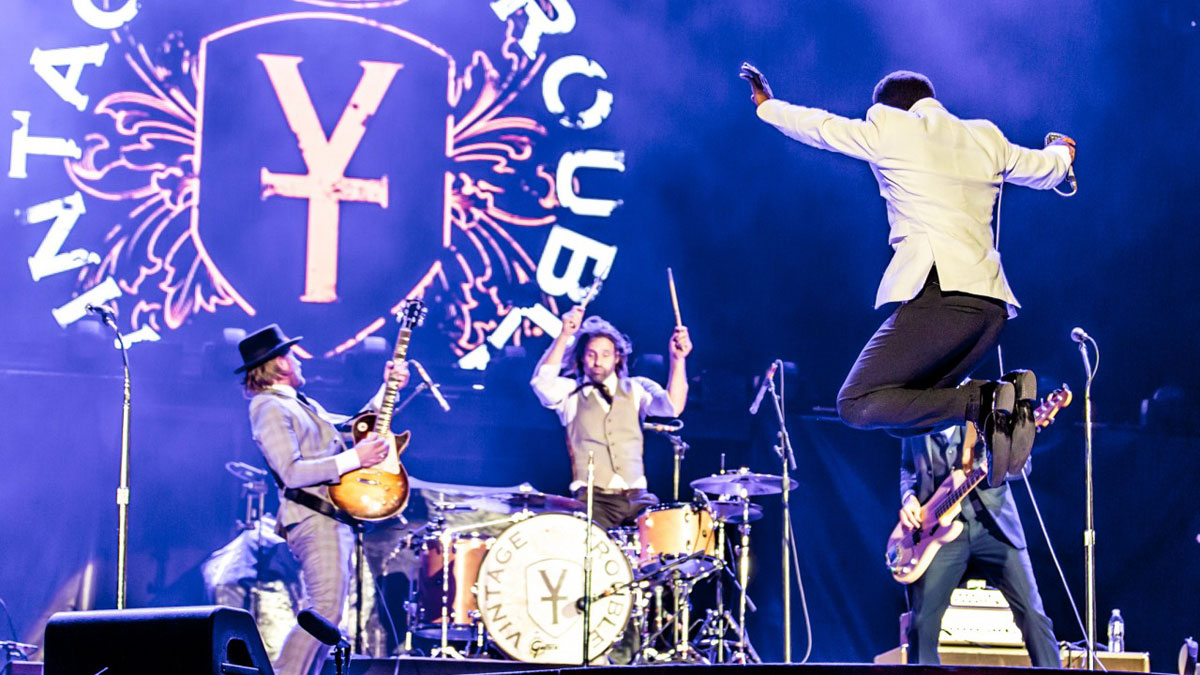
2. Don't forget to have fun
Music is entertainment, after all…
“Vintage Trouble were born on stage. We rehearsed for three weeks and then realised this band belonged on stage, we figured it would just work itself out.
Our whole energy was born from the audience, almost like they were helping us keep it rolling!
“We needed to play three hours and only had about eight songs, so we had to stretch it all out. Soon we were doing four residencies in LA every week, we were playing that much.
“Our whole energy was born from the audience, almost like they were helping us keep it rolling! We brought that in right away because the joy of music is incredible. It’s a boy’s dream to be on stage, rocking out, travelling, seeing the world... And to see how you make other people happy? That’s the amazing bit, so have fun with it.”
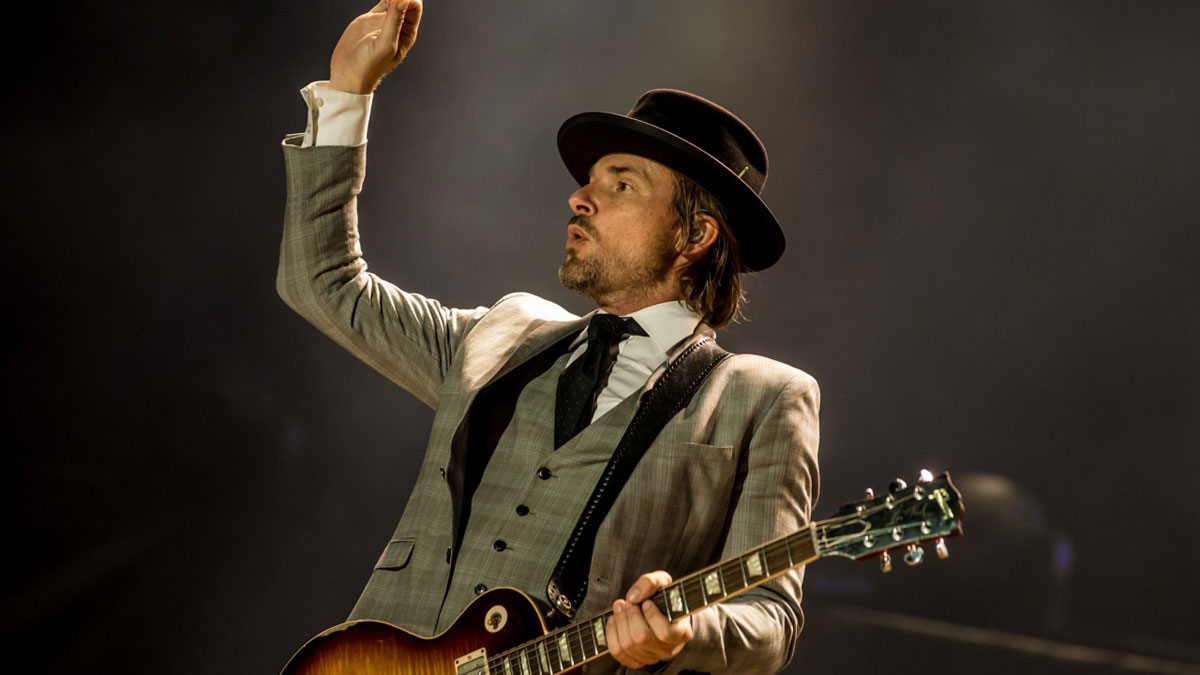
3. Be prepared for when things go wrong
Because you can almost guarantee that at some point, things will go wrong
“When you’re an electric guitar player, the biggest worry is always having problems with the instruments and gear. Because you’re relying on electrical parts and it has to work!
Try to rely less on equipment because it always will go wrong some day
“I’m very in tune with the gear I need, I have a very specific set up so when shit goes wrong and things aren’t working... it’s less threatening. It’s a worry because naturally you want everything to function exactly as you hoped. And believe me, I’m a lot calmer when everything’s working properly.
“Try to rely less on equipment because it always will go wrong some day. And when it does go wrong, you just gotta handle it and try your best to keep on playing.”
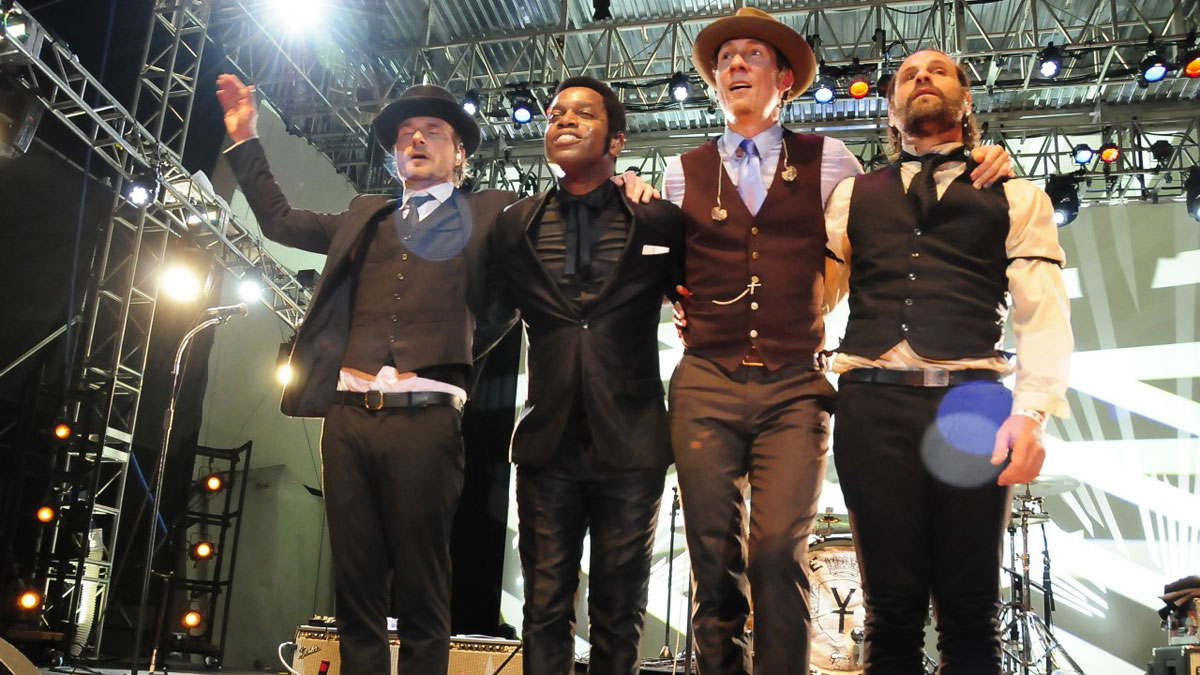
4. Looks are important
When Vintage Trouble enter the room, you instantly know that they’re in a band…
“When you’re starting a band, you’re on the hunt for those other people that really fit. When we first got together something really connected us… the music, the visuals, all of it.
We dress similar but all in our own style and that makes us feel more connected
“I want to see a band before they play and think, ‘I like their style already, they must be good!’ So we were talking about clothes and design early on. I do a lot of graphic arts, I love that stuff as well as playing guitar.
“I always loved old mug shots of the Mafia members, dressed up like bad motherfuckers. And guys like Little Richard, Chuck Berry, BB King, they all dressed up and will always look kinda timeless. So we dress similar but all in our own style and that makes us feel more connected. It feels like it’s working!”
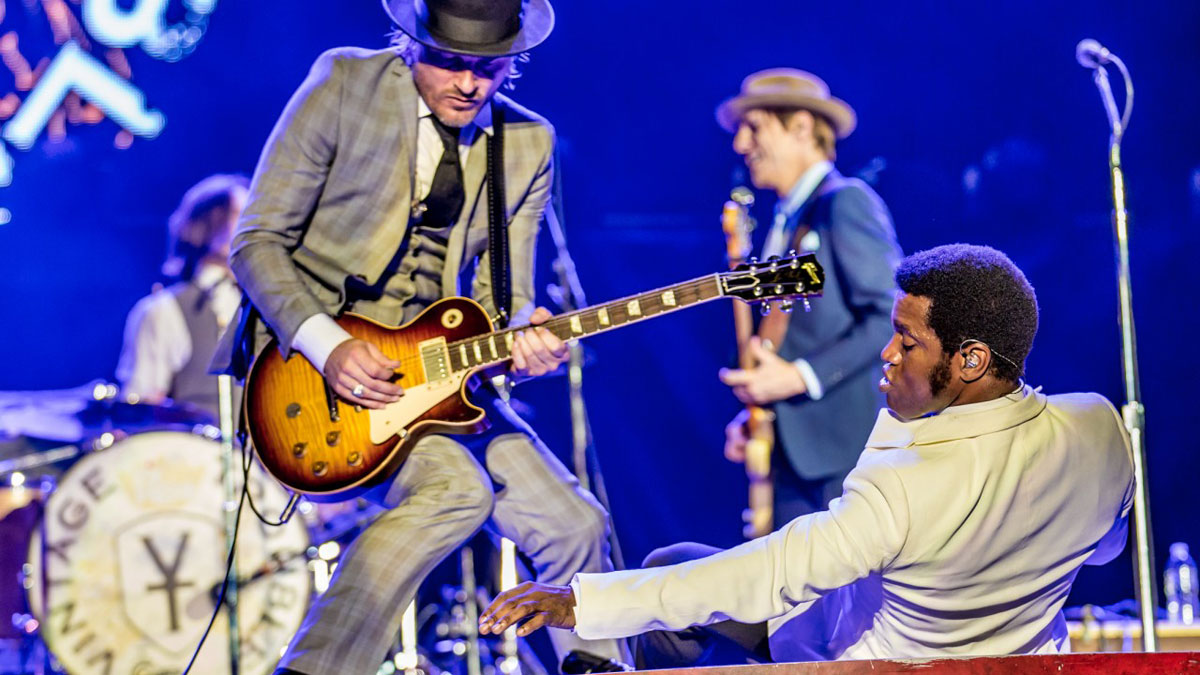
5. Just be yourself
Because there’s just no point in being a copycat
“It’s so important to have guitar heroes that you look up to. We all do, right? But make sure you find your own thing, don’t ever copy someone to the final detail. Get inspiration, listen to Angus Young and steal his riffs. I do every day! But make them yours.
There are so many guitar players out there, it’s important to stand out
“There are so many guitar players out there, it’s important to stand out. And there’s so much to get inspired from, if you put it all in a pot and stir it around… you’ll become your own thing.
“There are kids online that can play Steve Vai stuff perfectly… it’s incredible but that’s already Steve Vai’s thing. You can only be a lookalike. Be you. It doesn’t matter if you’re not the best player in the world – I’ve proved that. Rock out, have a good time and don’t be afraid to express yourself.”
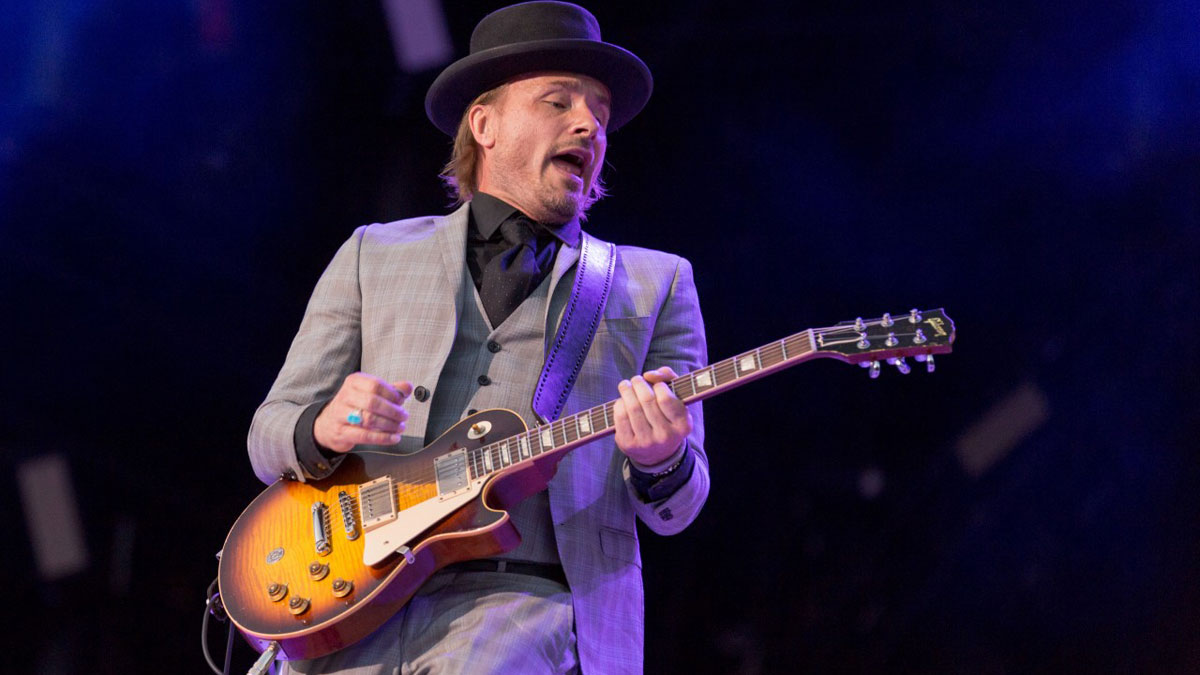
6. Be prepared to play through anything
If you can only play using certain gear, you might not be able to play at all…
“Just recently we played on a TV show, which meant I had to fly out with my pedalboard. We were playing with AC/DC later that day, but our flight got delayed, the gear never made it. We grab some guitars, run to the stage and play.
Your bandmates will never understand, they’re like, ‘Well there’s an amp, just play!’ Easy for them to say!
“We didn’t know what to do or what equipment we were using in front of 60,000 people. And your bandmates will never understand, they’re like, ‘Well there’s an amp, just play!’ Easy for them to say! [laughs]
“It was frightening, I just had to plug into the first thing I saw and turn it to 10. What else were we to do? Not play in front of 60,000 people?”
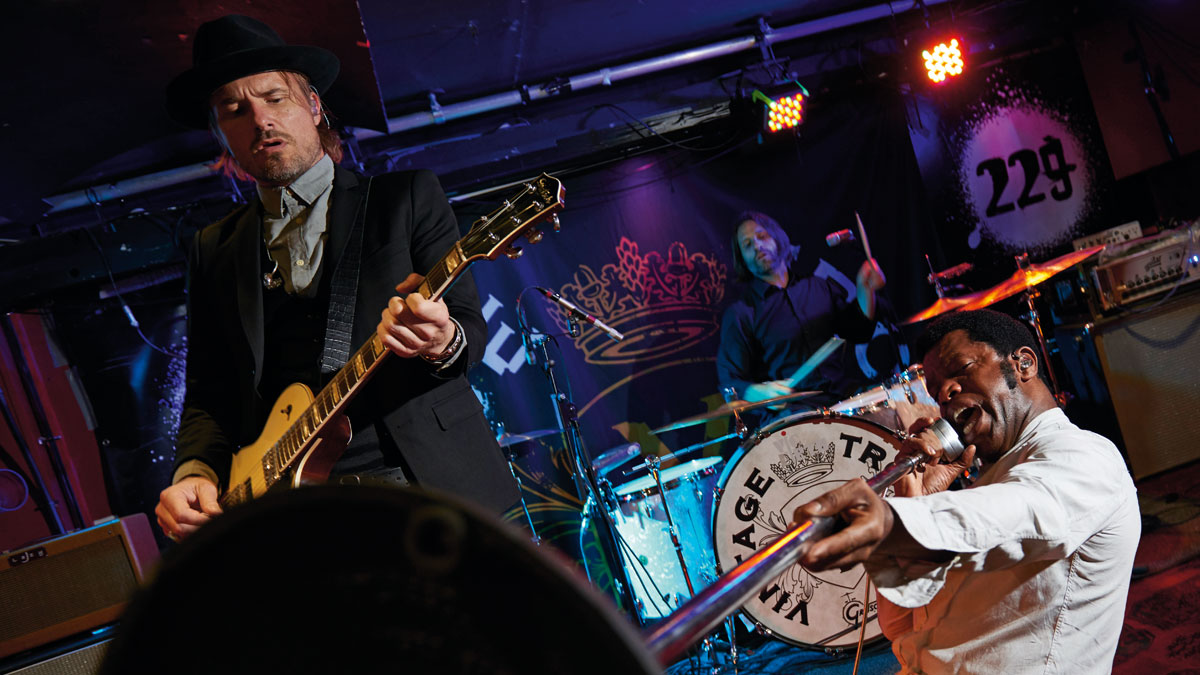
7. Tailor yourself to the gig
Amplify yourself to win over crowds
All your expressions need to be bigger because the audience are further away
“We set up for any gig like we’re in a blues bar. My amps are right next to the drums, we’re locked in super tight together. We bring a red Persian rug that’s like our centre spot. The difference with playing to 100,000 people at stadiums is you have to be bolder, louder and step up if you want to connect.
“Every little move has got to be perfect, like when you were a little kid practising in front of the mirror. All your expressions need to be bigger because the audience are further away. Trust me, AC/DC have it down, because they’ve been doing stadiums for the last 30-odd years!”
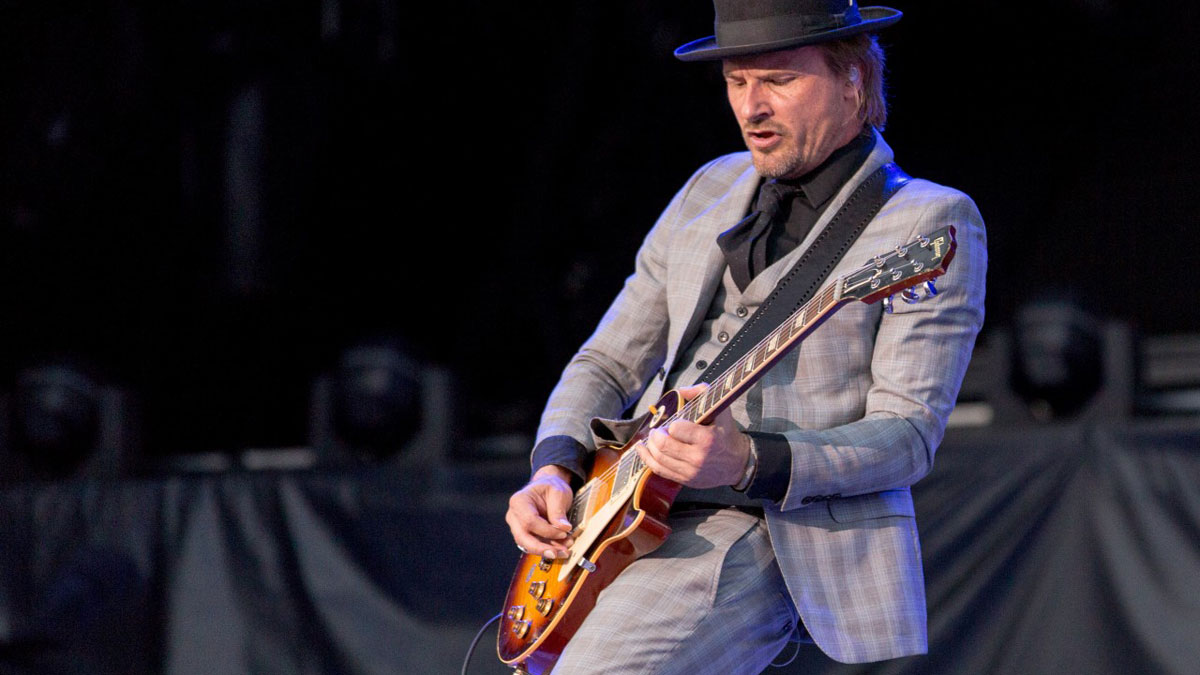
8. Try to find your own guitar tone
Nalle found his with a Leslie speaker
I love my Vibratone so much, I have it on all the time
“I love my Vibratone so much, I have it on all the time and it’s become one of the main staples of my sound to the point where it’s inspired how I play. They were made by Fender between 1967 to 1972 and there’s a speaker with a drum in front of it that can go slow or fast.
“You can really hear it going up and down in speed and create this organ-like chorus effect. Which is great because I’m huge fan of the B3 organ sound, there’s so much energy to it. The whole concept of there being an old motor inside spinning this thing around… I just think that’s really cool!”
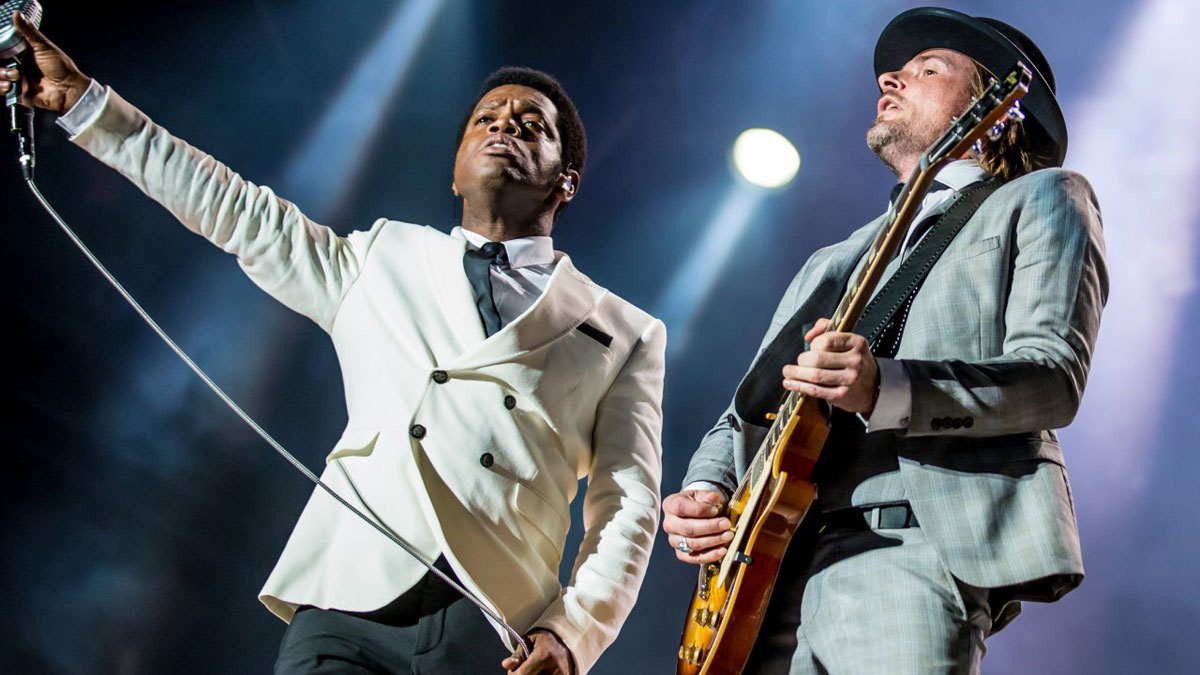
9. Take in as much as you can
Absorb the world around you for influence
“We’re fortunate enough to have toured the world several times, so it’s cool when you revisit places. It’s like you arrive in Tokyo and you’re like, ‘Hey, I know where the good restaurants are!’
I can’t play flamenco for shit, but I love watching it. Those guys are so cool
“I love getting lost in a city like Barcelona and try to find some good wine bars or awesome flamenco music. I like to let things rub off on me, for example Latin music is a huge part of me.
“I can’t play flamenco for shit, but I love watching it. Those guys are so cool – they’re like warlords! After seeing them I go home and think ‘Shall I just give up now?!’”
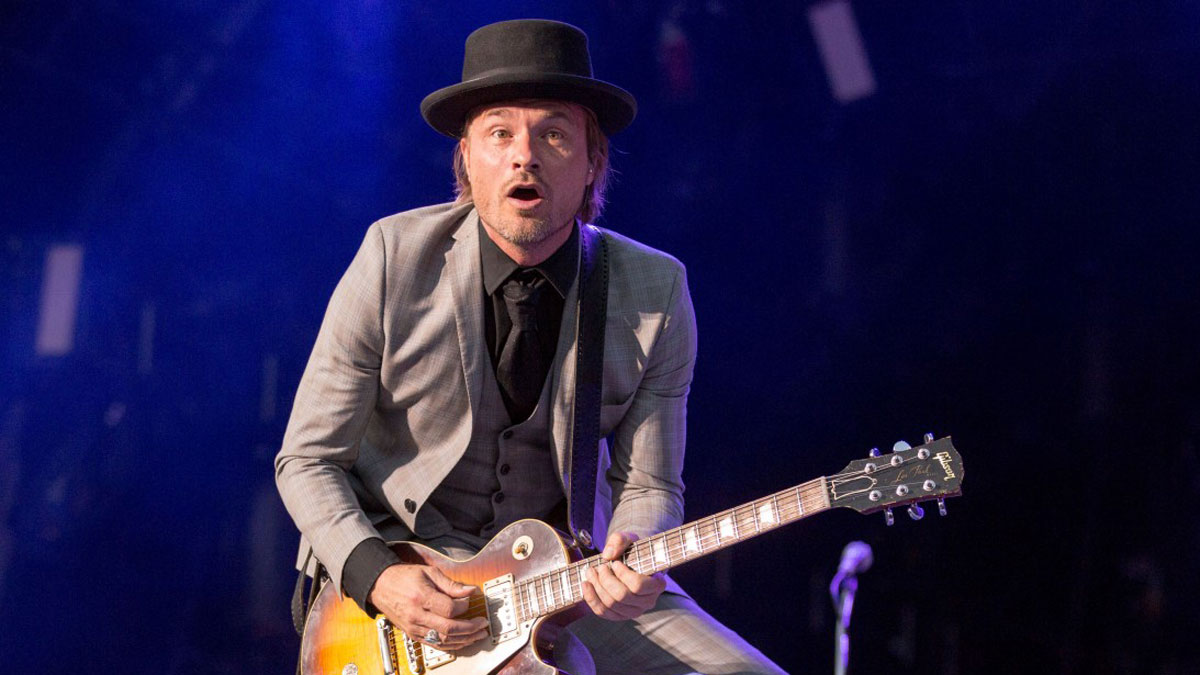
10. Simple is often the best
Don’t overcomplicate your gear
It’s a simple force, man. As a guitar player, it’s so easy to get confused with all the gear available to you
“It’s a simple force, man. As a guitar player, it’s so easy to get confused with all the gear available to you. There are all these pedals and sounds and bullshit.
“We were watching Angus on the AC/DC tour and saw it was just a guitar, an amp and him. It’s all about the playing, nothing to do with any effects. Just the simplicity of just the music, and he’ll do it for two hours straight without stopping.
“Okay, it’s not rocket science guitar, but it doesn’t need to be: Angus is one of the best. And that’s all I’ve wanted with Vintage Trouble – to be raw and focus on the basics of music itself.”
Amit has been writing for titles like Total Guitar, MusicRadar and Guitar World for over a decade and counts Richie Kotzen, Guthrie Govan and Jeff Beck among his primary influences. He's interviewed everyone from Ozzy Osbourne and Lemmy to Slash and Jimmy Page, and once even traded solos with a member of Slayer on a track released internationally. As a session guitarist, he's played alongside members of Judas Priest and Uriah Heep in London ensemble Metalworks, as well as handling lead guitars for legends like Glen Matlock (Sex Pistols, The Faces) and Stu Hamm (Steve Vai, Joe Satriani, G3).


